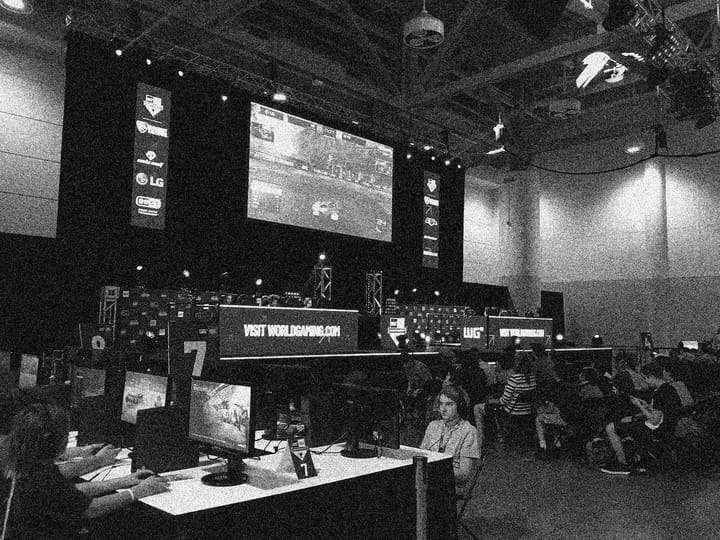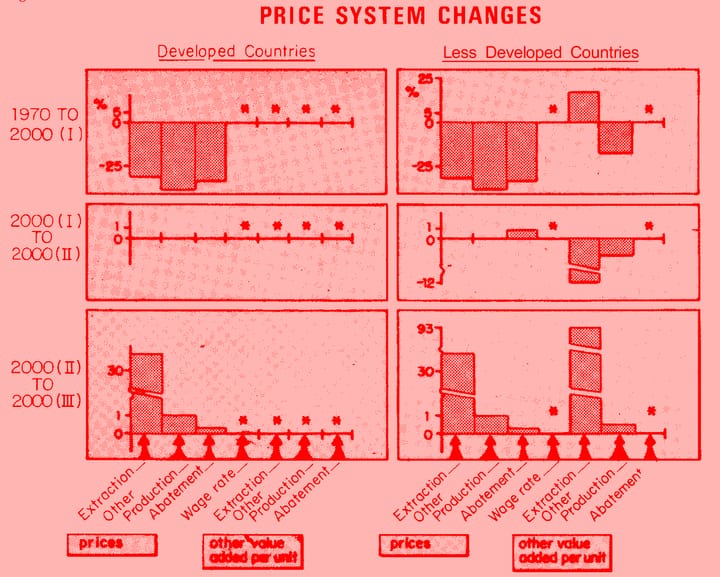Voluntary Twitter Extinction Society
Social media is both an expression of the crisis of the social that pre-exists the internet and a potent accelerator of that crisis. Solving this does not mean fixing online. It means changing, IRL, the society that makes life empty and atomized in the first place.

“The internet… is the mediation that abolishes all other mediations.”
– Marcel Gauchet
Can social media change the world? Twenty odd years ago digital theorists wondered whether the internet’s new global connectivity, conceived in the bosoms of the American security state, could remake and even recreate society. Today, the children of the online retain little faith in Twitter or TikTok’s capacity for good. But they also have a woefully poor understanding of where those media actually came from—let alone where they are going. In short, we lack a properly materialist theory of “social” media.
This lack of understanding is mirrored by a persistent confusion about its supposed political potential. If the Scylla of social media analysis was the naive utopianism of the early 2000s, surely the Charybdis is our current digital pessimism, which sees so much of the world’s problems—from political polarization to sexual impotence to declining literacy rates—as both the causes and consequences of being Too Online.
In an intelligent article for The Atlantic, Jonathan Haidt represents the latter position exemplarily. While he is undoubtedly right that the dialogical nature of social media, combined with its global reach and algorithm-based, dopamine-fueled addictive nature, can foment outrage similar to that produced by earlier religious conflicts (themselves helped along by the print revolution), his causal explanation of our present political dysfunction (social media ergo loss of trust in institutions ergo political dysfunction) is ultimately lacking.
As with many “bourgeois” commentators, what is missing in Haidt’s account is the economic side of the story. The extreme marketization of society that defined the 1980s and 1990s made the West uniquely vulnerable to the perils of social media. The dissolution of voluntary organizations, the decline of Fordist job stability (and with it trade-unionism), the death of religious life, the evaporation of amateur athletic associations, the “dissolution of the masses” and the rise of a multitudinous crowd of “individuals”—all were forces that generated the demand for social media long before there was a product like Facebook to supply the consumer. Social media could only grow in a void not of its own making.
Social media is thus both an expression of the crisis of the social that pre-exists the internet and a potent accelerator of that crisis. A proper sociology of the internet would treat it as a real abstraction with concrete effects on society as a whole, and which, like any capitalist abstraction, also distorts and deforms the society it supposedly mirrors. According to Geert Lovink,
If we want to pose the question of what this ‘social’ in today’s social media really means, a possible starting point could be its disappearance…at some point the social lost its historical role and imploded into media. If the social is no longer the once dangerous mix of politicized proletarians, frustrated unemployed and dirty clochards that hang out on the streets, waiting for the next opportunity to revolt under whatever banner, then how do social elements manifest themselves in the digital networked age?
Here the barrenness of calls to “democratize the online” is evident. The issue is not just who owns Twitter, Facebook or Instagram (even if that is also an important question), but also what Twitter, Facebook or Instagram are, what piece of social technology we are dealing with, much like the ownership of nuclear weapons cannot be decoupled from the question of what purpose nuclear weapons serve. This position too often sees the internet as something akin to the post office, printing press or radio—a new “Gutenberg moment” in which the medium both enables witch hunts and the Enlightenment.
Yet this view both overstates and understates the effects of social media. It overstates, in that the internet has simply exacerbated the pre-existing trends of the neoliberal period. But at the same time, the internet is also not purely a means of communication. It is in itself a social form—a type of association, community, or a machine to generate “imagined communities.” Any sociologist and philosopher will tell you that we can’t separate those two components, of course, and that every new means of communication will spawn its own communities (communities of reading, or “the “imagined communities” which historian Benedict Anderson saw as central to his “print capitalism”), yet in the meantime we lose sight of the real sociological drivers of the internet.
Instead, the internet must be understood within the frame of the crisis of civil society that political scientist Peter Mair described as the “void.” On the one hand, the online thrives off of the atomization that the neoliberal offensive has inflicted on society. It is the substitute association for a world in which all associative units have been pulverized. (There is now ample research showing positive correlations between declining civic commitment and broadband access.) At the same time, the internet evidently accelerates and even entrenches this atomization. In this sense it is hardly a substitute for the older types of civic association we knew from the twentieth century. The exit and entry costs of the online of our new, simulated civil society are extremely low. The internet is the ideal exit option for a general “exit society”—it allows people to exercise “voice” in the Hirschmanian sense while always keeping open the possibility that you can completely drop out and check out. The stigma that comes with leaving a Facebook group or a Twitter subculture is incomparable to having to move out of a neighborhood because you scabbed during a strike.
The internet does create communities, of course, from meme groups to cooking tips. Yet the thickness and density of previous associations—to call them “voluntary” is misleading—are nowhere to be seen online. Perhaps, then, the internet is here best understood as the first properly “voluntary” association; the commodification of the social come into its own.
Understanding the internet in this frame also gives us clues as to why Americans are so vulnerable to the trends Haidt describes. Our society discourages virtually all forms of social behavior and encourages all forms of indulgent individualism. Everyday, Americans are moving their homes thousands of miles from where they were born and where their parents onced lived (often like their parents before them), making social life on the neighborhood-level deeply ephemeral. We have virtually no shared social rights (save the right to a social security check) and, not coincidentally, we feel almost no social obligations. We have fewer friendships than ever and smaller families than we once did. We’ve traded community baseball clubs for basement Pelotons. We are also having less and less sex, with talk of a “sexual recession” now widespread. In the face of this crisis of connection, it is hard not to reach for laudanum in the extremely online.
(Here’s a free idea for a research project: these social facts suggest that social media is likely more detrimental to rich modern countries than poorer, more traditional ones. The Philippines boasts extremely high levels of social media usage, but the size of Filipino families and the fact that some 37% attend mass every week suggests that social media is likely to have less deleterious social effects there than in the United States.)
Haidt’s analysis is insightful and commendable—but unfortunately social media did not cause “the fragmentation of everything”, as he claims, and its existence alone cannot explain why the last decade has been one of unprecedented and supreme stupidity. Instead, social media is better understood as a consequence of the fragmentation wrought by the crisis of the social.
In the fog of our current cultural bickering, it is also hard to remember that America has experienced previous periods of intense political polarization. Periods where the working-class vote was split between the two major parties, along ethnic and religious lines; where the main “political” debates of the day were whether we should be allowed to drink alcohol and whether paper money was better backed by silver or gold; where political violence was normal. During that era nominal “Progressives” advocated for modernization of the school system, the end of child labor… and eugenics. Their rivals attacked them on populist grounds, defended crank theories, and praised small farmers. The division between city and country never seemed so great.
What happened next was indeed unusual: the working class got organized and for the next half century managed to put the “labor question” front and center in every election. It was organized labor, not journalists or newspapers, Progressive businessmen or silverite populists, that truly civilized American politics. And if there is any hope of any such civilizing project today it will start in our union halls, not on our TLs. We are not technological sinners, nor should we be bamboozled by the call of digital utopianism. It is hard to guard against both temptations since, in the phantasmagoria of the online, it can be difficult to remain materialist—“there still is no Das Kapital for the internet”, as Mark Fisher liked to say.
■
John Terese might not be well known here, but he’s a hit in central Europe.



